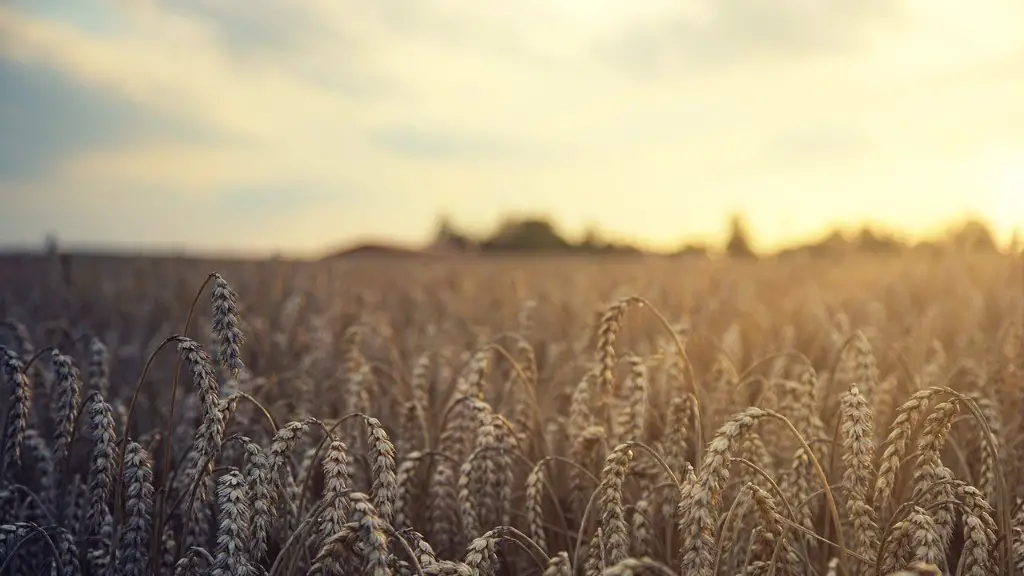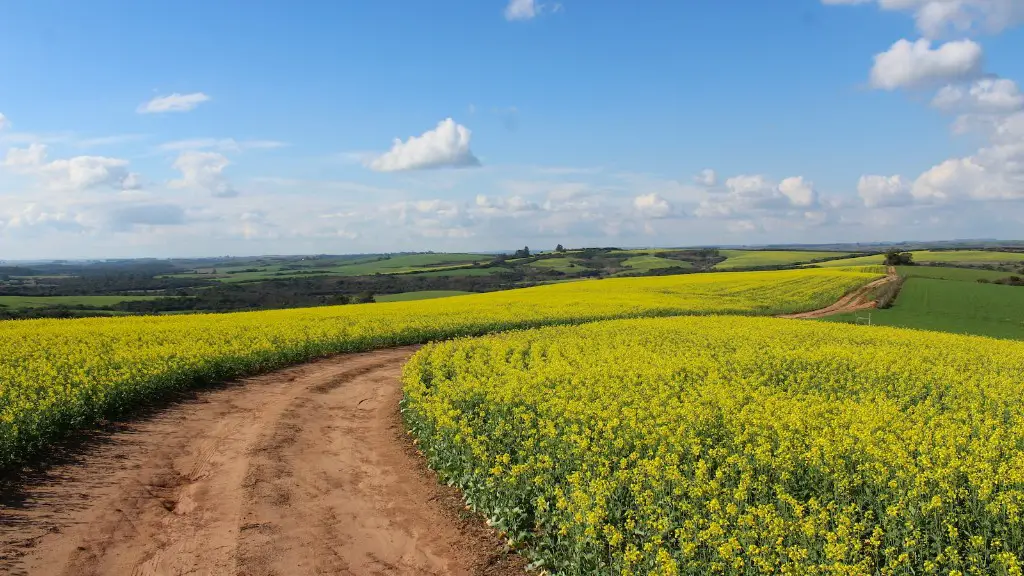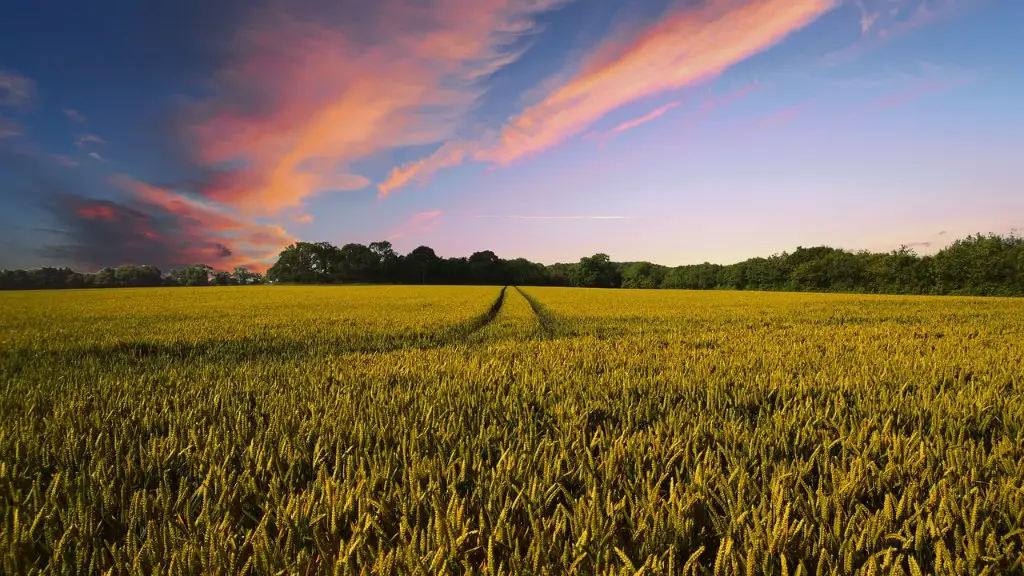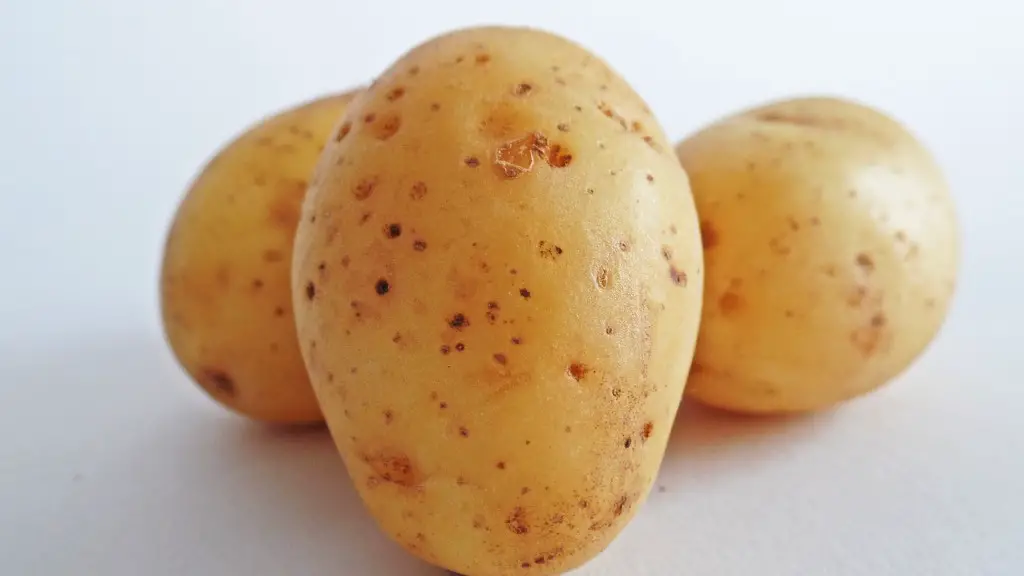Agriculture is the process of producing food, feed, fiber and other desired products by the cultivation of certain plants and the raising of domesticated animals. Agriculture affects our society in a number of ways. First, it is a major source of the food we eat. Without farmers and Agriculture, we would not have the vast array of food options that we enjoy today. Second, Agriculture is a significant contributor to the economy. In the United States, the agricultural industry employs over two million people and contributes over $200 billion to the economy each year. Third, Agriculture has a major impact on the environment. The way we grow and produce food can have a positive or negative impact on the land, water and air. Fourth, Agriculture plays a role in social and cultural traditions. For example, many holidays in the United States revolve around food, such as Thanksgiving and Christmas. Finally, Agriculture can be a force for good in the world. Through initiatives like fair trade and sustainable agriculture, farmers can help to improve the lives of people in developing countries and protect the environment.
The agricultural sector is a significant contributor to the economy and employs a large number of people. It is also a major user of natural resources, such as land, water and fossil fuels. Agriculture can have a negative impact on the environment, through practices such as intensive farming, deforestation and water pollution. It can also cause problems for wildlife, by destroying habitats and introducing pests and diseases.
How is agriculture affecting us?
The agricultural industry is a vital part of the US economy, contributing a significant amount to the country’s GDP. The sector is responsible for producing the food that we eat, as well as other products that we use in our everyday lives. The industry employs a large number of people, and is a major contributor to the US economy.
Agriculture is vital to human life. It provides food, clothing, and shelter. It helps people to enjoy a higher quality of life. Agriculture also helps to protect the environment.
What are 3 effects of agriculture on the environment
Agricultural production can have significant environmental and social impacts, including changes to the hydrologic cycle, introduction of toxic chemicals, nutrients, and pathogens, reduction and alteration of wildlife habitats, and invasive species. These impacts can be both negative and positive, depending on the specific situation. Proper management of agricultural production can help to minimize negative impacts and maximize positive ones.
When early humans began farming, they were able to produce enough food that they no longer had to migrate to their food source. This meant they could build permanent structures, and develop villages, towns, and eventually even cities. Closely connected to the rise of settled societies was an increase in population.
What are 3 reasons why agriculture is important?
1. Agriculture is the main source of raw materials for industries.
2. Agriculture is important to international trade.
3. Agriculture plays a big role in a nation’s revenue.
4. Agriculture provides employment.
5. Agriculture is crucial to a country’s development.
6. Agriculture can help heal the environment.
7. Agriculture goes hand-in-hand with war.
8. Agriculture is a key sector in the economy.
9. Agriculture is a way of life for many people.
10. Agriculture is important for food security.
It is clear that the domestication of plants and animals has had a profound impact on human history. Agriculture has allowed for the development of civilizations and has resulted in the rise of cities and states. Agriculture has also allowed for the specialization of labor, which has resulted in the development of art, literature, and science. However, agriculture has also resulted in conflicts over access to food and water, and the weather can sometimes damage crops.
What are the 10 benefits of agriculture?
Agriculture is vital for the economic development of any country and Nigeria is no exception. Agriculture in Nigeria provides employment for a large percentage of the population and is a major source of export earnings. It also contributes to the provision of food for human consumption, raw materials for industry and preservation of the environment.
There are many reasons why agriculture is important in Nigeria. Firstly, it is a major source of food for the population. Nigeria has a large population and a growing food demand. Agriculture is therefore essential in order to meet this demand. Secondly, agriculture provides employment for a significant proportion of the population. In Nigeria, over 60% of the population is employed in agriculture. This sector therefore plays a vital role in reducing unemployment and poverty.
Thirdly, agriculture is a major source of foreign exchange. Nigeria exports a number of agricultural products, such as cocoa, oilseeds and coffee. These exports generate valuable foreign exchange earnings which are essential for the development of the country. Fourthly, agriculture contributes to the protection of the environment. Agricultural land provides habitat for a wide variety of flora and fauna.
Fifthly, agriculture is a means of subsistence for many people in Nigeria. Small-scale farmers produce food for their own families and often
Agriculture is the backbone of any economy and Without it, it is not possible to have a stable economy. It is the foundation of civilization and any stable economy.
What are the 5 major consequences of agriculture
Agriculture is a significant driver of environmental change, both positive and negative. On the positive side, agriculture can help reduce atmospheric CO2 levels, improve air quality, and provide habitat for wildlife. On the negative side, agriculture can lead to soil erosion, water pollution, and deforestation. Agriculture also contributes to climate change, though the magnitude of this contribution is still debated.
Agriculture provides raw materials for many industries. Without agricultural products, many businesses would not be able to function. Food, shelter, and clothing are all dependent on agriculture for their production. Raw materials such as crops for food, silk for cloth, and wood for shelter, all come from agriculture.
Agricultural products are essential for many industries and businesses, and without them, many aspects of our lives would be very different.
What is the positive impact of agriculture?
While agriculture can have negative impacts on the environment, it can also have positive impacts. Agriculture can trap greenhouse gases within crops and soils, or mitigate flood risks through the adoption of certain farming practices. These positive impacts can help offset the negative impacts of agriculture, and help to protect the environment.
Agriculture has a major impact on the environment, both positive and negative. It can lead to soil erosion, water pollution, contribute to climate change, and deforestation. While it is important to note the potential negatives of agriculture, it is also worth noting that agriculture can have a positive impact on the environment as well. For example, agriculture can help to improve soil fertility, provide habitat for wildlife, and sequester carbon.
What is the main purpose of agriculture
Agriculture has been a key driver of human civilization, enabling the development of sedentary societies through the production of food surpluses. Agriculture encompasses a wide range of activities, from crop and livestock production to aquaculture, fisheries and forestry. These activities provide food and other products for both human and animal consumption.
Agriculture has undergone a major transformation in recent years, with the introduction of new technologies and methods that have increased productivity and efficiency. However, the sector faces challenges in the form of climate change, water scarcity and soil degradation.
In order to sustainably meet the needs of a growing population, it is essential that we continue to invest in agriculture and adopt innovative approaches that improve productivity while protecting the environment.
The major importance of Agriculture is food. Agricultural foods like cassava, yam, rice, beans, maize, millet, groundnut, etc are readily made available for consumption. It is certainly the most essential element of the global food supply.
What is the biggest problem in agriculture?
There are two major problems in agriculture: the loss of agricultural land and the decrease in the varieties of crops and livestock produced. Agricultural land is being lost due to urbanization, while the number of crop and livestock varieties is decreasing due to the trend toward monoculture production. These problems are having a negative impact on the sustainability of the agricultural sector.
Industrial agriculture is a major contributor to deforestation, as trees are cleared to make way for crops or grazing land. This practice can have a serious impact on the environment, as trees play an important role in regulating the climate and stabilizing the soil.
Intensive farming practices can also cause soil degradation, as large amounts of chemicals are used to fertilize and pest-proof crops. This can lead to the development of resistant strains of pests and weeds, which can then spread to surrounding areas. Soil degradation can also lead to the depletion of essential nutrients, making it more difficult for plants and animals to thrive.
In addition to the environmental impacts, industrial agriculture can also have negative social and economic impacts. Small-scale farmers and indigenous peoples often lose their land to large-scale operations, and working conditions on industrial farms can be poor. Additionally, the production of cheap, subsidized crops can undercut the prices of local crops, making it difficult for small-scale farmers to compete.
Final Words
Agriculture has a huge impact on our society. It is one of the most important industries in the world and provides us with food, clothing, and many other products we use every day. Agriculture also supports many other industries, such as transportation and manufacturing. Without agriculture, our society would be very different.
Agriculture affects every aspect of our lives, from the food we eat to the clothing we wear to the cosmetics we use. It plays a vital role in our economy and in our environment. Agriculture has a huge impact on our society.





